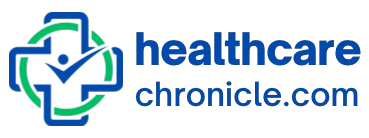Establishing an ECMO Program: Steps, Investment, and the Role of ECMO Advantage
Extracorporeal Membrane Oxygenation (ECMO) is a sophisticated medical therapy used to support heart and lung function in patients with severe cardiac and respiratory failure. Establishing an ECMO program is a significant undertaking that requires substantial investment and expertise. This article explores the essential steps and financial considerations involved in setting up an ECMO program, as well as the benefits of partnering with ECMO Advantage for effective implementation.
Key Steps to Establish an ECMO Program
Feasibility Assessment: Evaluate patient volume, clinical needs, and potential benefits to determine the feasibility of an ECMO program.
Financial Planning: Outline initial and ongoing costs, including equipment, staffing, and training expenses.
Infrastructure Development: Modify existing facilities or build new infrastructure to accommodate the ECMO technology and patient care needs.
Staff Training and Development: Invest in comprehensive training for all multidisciplinary team members involved in ECMO care.
Equipment Procurement: Purchase necessary ECMO machines, disposables, and monitoring systems.
Program Implementation: Launch the program with clear protocols and guidelines.
Quality Assurance and Improvement: Establish ongoing training and evaluation to ensure high standards of care.
Initial Financial Investment
Starting an ECMO program requires a substantial initial financial investment. Costs can include:
ECMO machines and equipment, which can range from $80,000 to $100,000 per unit.
Facility adjustments or constructions.
Training programs for physicians, nurses, and support staff.
Maintenance and quality control systems.
Total setup costs can often exceed $1 million, depending on the scale of the program and regional cost factors.
Partnering with ECMO Advantage
ECMO Advantage, based in Murfreesboro, TN, offers specialized consulting and support services that can be crucial for hospitals establishing an ECMO program. Partnering with ECMO Advantage provides several benefits:
Expertise and Experience: Access to a team with extensive ECMO operational experience.
Staff Training: Comprehensive training modules tailored to the needs of the hospital staff.
Program Development: Assistance in program design, implementation, and troubleshooting.
Ongoing Support: Continuous educational and technical support to maintain program standards.
Actionable Insights for Hospitals
Hospitals considering the addition of an ECMO program should take the following actionable steps:
Conduct a Detailed Needs Assessment: Understand the specific needs of your patient population and how an ECMO program could meet them.
Develop a Comprehensive Business Plan: Include all potential costs and a phased approach to funding and investments.
Engage Key Stakeholders: Involve hospital leadership, potential funding sources, and clinical teams early in the planning process.
Choose the Right Partners: Consider the benefits of partnering with experienced organizations like ECMo Advantage to mitigate risks and enhance program success.
Plan for Long-Term Sustainability: Include plans for ongoing training, equipment upgrades, and program evaluation to ensure long-term viability and success.
Conclusion
Establishing an ECMO program is a complex but potentially rewarding endeavor that can significantly enhance a hospital’s capability to provide advanced life support. Careful planning, significant financial investment, and expert partnerships are essential to successfully launch and sustain an ECMO program. Partnering with ECMO Advantage can provide invaluable support throughout this process, helping to ensure the program is well-integrated and achieves its intended clinical outcomes.








